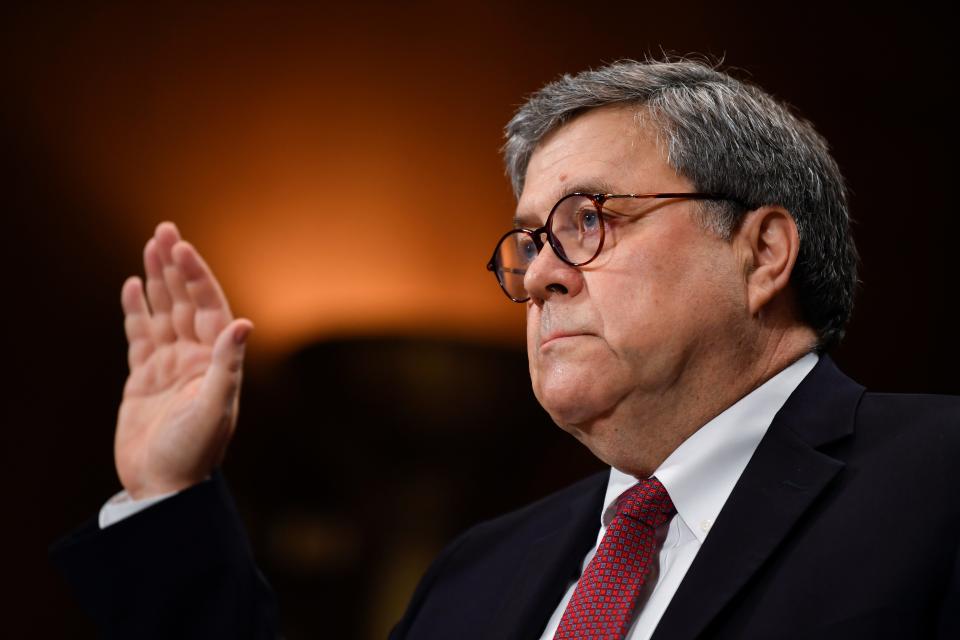Supreme Court clears way for federal executions to resume
WASHINGTON – The Supreme Court cleared the way Monday for the Trump administration to resume federal executions for the first time in 17 years.
The justices denied a challenge from four convicted murderers who argued that federal executions must adhere to the specific protocols used by the states where each man was sentenced, including the method of execution. Associate Justices Ruth Bader Ginsburg and Sonia Sotomayor said they would have heard the challenge.
Attorney General William Barr announced last year that the federal government would conduct its first executions since 2003 using the single drug pentobarbital. The drug is used in many but not all states.
Federal District Court Judge Tanya Chutkan ruled that the executions would conflict with provisions of a 1994 federal law, under which the federal government is supposed to follow protocols used by the states in which the prisoners were sentenced. That ruling was upheld by a three-judge federal appeals court panel.
Fourteen states led by Arizona had sided with the Justice Department, telling the high court that pentobarbital "is a fast-acting barbiturate that can reliably induce and maintain a coma-like state that renders a person insensate to pain."
The Supreme Court temporarily blocked the executions in December but said it expected the challenge would be handled by the appeals court "with appropriate dispatch."
Three conservative associate justices – Samuel Alito, Neil Gorsuch and Brett Kavanaugh – indicated at the time that they expected the Trump administration to prevail within 60 days, and the executions could go forward.

A three-judge appeals court panel including two of President Donald Trump's nominees allowed the executions to proceed, prompting the latest Supreme Court petition. Barr then directed the federal Bureau of Prisons to schedule four executions, including for three of the inmates involved in the ongoing litigation. They are slated for July 13-17 at the U.S. Penitentiary in Terre Haute, Indiana.
The four inmates seeking the court's intercession were unanimously convicted more than 15 years ago of crimes including murder, torture and rape. Children were among the murder victims in each case.
Only three men have been executed by the government since the federal death penalty was restored in 1988. The first was Timothy McVeigh, executed in 2001 for the 1995 bombing of an Oklahoma City federal building in which 168 people died.
Among the 62 federal death row prisoners are Dzhokhar Tsarnaev, convicted in the 2013 Boston Marathon bombing, and Dylann Roof, who killed nine people inside a Charleston, S.C., church in 2015.
Overall, more than 1,500 prisoners have been executed since the 1970s, nearly 40% of them in Texas. But the number of executions in the states has declined steadily for the past two decades and now averages fewer than 25 a year.
This article originally appeared on USA TODAY: Federal death penalty: Supreme Court allows executions to resume

